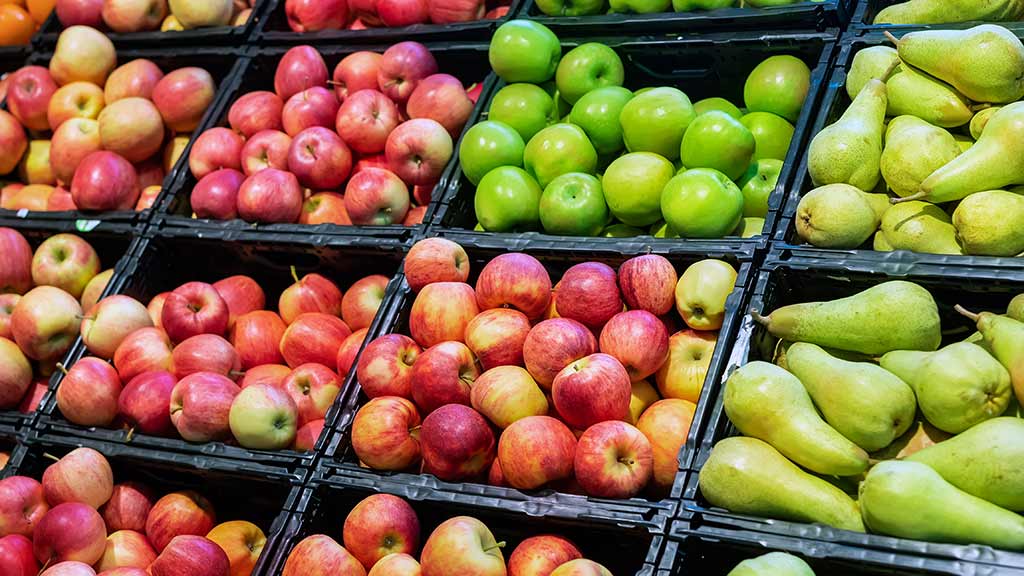Retailer behaviour ‘splintering’ food supply chain
 © Kirill Gorlov/Adobe Stock
© Kirill Gorlov/Adobe Stock A failure on the part of several major retailers to nurture relationships with their suppliers has led to a “splintering” of the supply chain, according to industry experts, with horticulture businesses in particular under huge strain.
Retail specialist Ged Futter, who worked as a senior buyer at Asda for almost 15 years and is author of an upcoming Oxford Farming Conference (OFC) report on supply chains, said the “cut throat” market in the UK had left horticulture supply chains “very close” to breaking.
But he defended the work of the Groceries Code Adjudicator (GCA), established in 2013 to regulate relationships between retailers and their direct suppliers, saying it had “not been a failure”.
See also: Farm leaders reject claims retailers aren’t ‘profiteering’
“We don’t have the Wild West we’ve had previously,” he told a special OFC podcast ahead of the publication of the report.
“But there are isolated pockets [with problems], and one of those is produce.
“That is an area where we are seeing behaviours from certain retailers which aren’t helping food security and food supply chains in the UK.”
Mr Futter went on to name Tesco, Morrisons, Lidl and Iceland as the retailers that had performed badly in this year’s GCA survey – with Tesco dropping back significantly from second place last year.
Inexperienced retail buyers
Two of the big issues identified in the report were supermarkets keeping growers on long-term, fixed-price contracts, which take no account of increased volatility, and massively inexperienced retail buyers who jump quickly from category to category.
Ali Capper, grower and chairwoman of British Apples and Pears, also spoke on the OFC podcast, and suggested this behaviour was being driven by an increase in the prominence of the discounters.
These retailers have been able to keep prices low because they have much smaller ranges and simpler supply chains.
“It’s all about Aldi price match,” she said. “What that means for growers is that conversations about varietal development, new innovations and investment in packhouse have dried up.
“What we’ve got instead is just a total focus on price negotiation and some of the toughest, nastiest negotiating tactics I’ve ever seen.”
Silo mentality in retailers
Both Mr Futter and Mrs Capper also highlighted the issue of “silo mentality” in retailers, with chief executives often making statements that do not align with their buyers’ behaviour.
“You always have to look at what’s being said at the top and what you are hearing from your buyers,” said Mr Futter.
“When you have this disconnect between those two, that’s where the red flags are.”
Mrs Capper said a recent commitment from Tesco to reduce plastic usage in fresh produce was indicative of the problem.
“[It’s] brilliant, but they haven’t communicated anything to their supply base,” she said.
“While we all want to see less plastic, the reality is this is a really complex issue. You’ve got a supply chain that has invested in infrastructure to deliver packs of product.
“If you want to change that, it’s going to need significant capital reinvestment. That is going to take strategy and a plan.
“Retailers need to stop behaving like the current government and announcing soundbite measures, and they need to start engaging in in-depth, strategic conversations with their supply base about where both parties want to be in the next five and 10 years.”
- The Oxford Farming Conference report will be published on 3 January. Visit ofc.org.uk to read it.
High cost of audit burden
One other problem area highlighted in the report is the audit burden on farmers and growers.
Ali Capper, grower and chairwoman of British Apples and Pears, listed nine different types of audit she faces as a grower, looking at everything from food safety to worker welfare.
“One apple grower said to me recently that just five years ago, one person managed all their audit prep,” she said.
“Now they’ve got three people full-time to do that preparation work, and for the audits that are then undertaken by their retail customers, they need upwards of 12 more people from various other parts of the business on a part-time basis.
“They totted up the hours recently and it was a total of 7,500 man hours per year for apples in packs to a retailer. It’s got out of control.”
Simple
Both Mrs Capper and retail specialist Ged Futter said there was a problem with all farm businesses being treated the same, despite different levels of food safety risk in different sectors, and that retailers looking for differentiation in the market were adding to the audit burden.
“Different doesn’t have to mean different in the audits,” said Mr Futter.
“When you have got products such as apples, which are relatively simple in the scheme of all the different products there are, there needs to be a recognition that simplicity is something that is possible.
“One of the things I looked at as a buyer was how I could make things as simple as possible, because if things are simple, I’m saving money and that’s what every retailer wants.”
